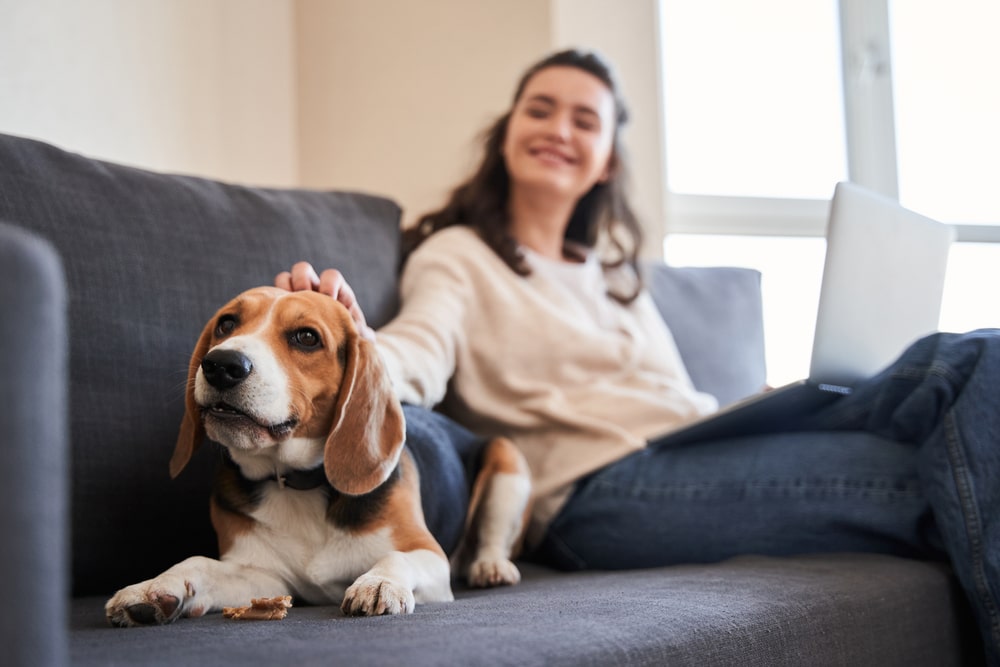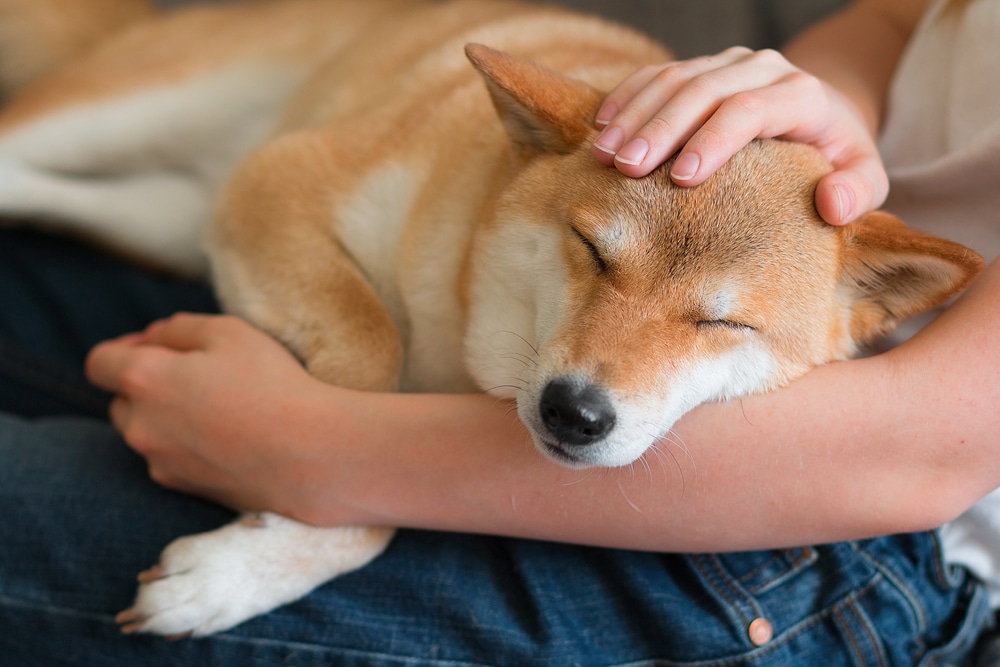Dogs are often friendly pets, but they can occasionally develop behavioral issues, anxiety, or hypersensitivity. A dog can calm down with the support of a strong relationship with the owner though. However, by keeping the dog under your supervision, you can also avoid anxiety and hypersensitivity.
Showing a dog your affection will help it to calm down. You can take the dog for a walk if it has anxiety or is hyper-sensitive. Additionally, providing calming treats can assist in reducing hypersensitivity. You can train your dog in socialization, though, if it has behavioral issues.
Table of Contents
Best Ways To Calm A Dog

Dogs can occasionally become hyperactive for a diverse range of reasons, such as when they are stressed or when they are terrified of thunderstorms. They might, regrettably, destroy things and hurt people or other animals. The following advice will help you relax and quiet your dog.
Show The Dog Physical Affection
Physical affections are the actions that are taught to and applied to a dog while it is being trained. These attachments could involve handshakes, commands, physical restraint, and discipline.
Therefore, using physical affection may allow you to control your dog if you notice that it is acting hyperactively or if you are taking your dog in for grooming.
Never attempt to catch your dog’s collar when it is attempting to jump or go toward a door since this may encourage it to try harder. As your dog grows up, gradually train it for these situations.
Offer It Treats
Treats are nutritious food items loved by dogs. When your dog tries to be excessively active, such as when it sees another dog, a cat, or a stranger, try giving it treats.
This will give your dog a chance to relax and divert its attention away from the stressful situation. Some treats also include vital vitamins and nutrients that are beneficial for helping dogs cope with anxiety. Offering treats just after a stressful session is over can be quite beneficial too.
Provide A Calm Environment
Dogs are typically thought of as being quite calm and sociable creatures. According to research, their brains are very sensitive, and at the same time, they are excessively sensitive to noises and sounds to a significant extent.
Thus, they would probably not enjoy being in an atmosphere with a lot of harsh noises, like building activities or factory noises. As a responsible owner, strive to keep a calm environment so your dog may remain calm and avoid acting out on because of the aforementioned activities.
Take The Dog For A Walk
Studies have shown that walking reduces stress and enhances both mental and metabolic health. Your dog will gain several advantages from consistently going for walks. Besides that, it will be psychologically sound and active.
It’s the dog’s daily observation of its surroundings and eventual training with the new people and animals it encounters that also helps. As a result, the dog won’t react negatively to any new condition.
Play Indoor Games
The games played with dogs inside the home include those using toys, balls, and other items. The dog’s energy gets boosted by playing these games. Dogs do not become agitated despite energy boosters because they keep themselves busy.
Dogs get active when you play indoor activities with them, such as giving them chew toys to discover, new games, activity flip boards, etc.
Offer Some Calming Supplements
A dog’s anxiety can be reduced with the help of calming medications like hormone supplements. To relieve dog stress, the body naturally produces melatonin, casein, tryptophan, and L-theanine.
These supplements are sold commercially in pet stores and can be given to your dog if it experiences stress occasionally. However, they should only be administered in the most desperate situations.
These supplements are essentially chemically produced proteins or steroids that have negative effects on the health of the dog. However, these supplements work well at calming a dog. Consult with your veterinarian for some suggestions before going with this option.
Give The Dog Anxiety/Hypersensitivity Medication
Dogs can be prescribed a variety of over-the-counter medications to reduce their nervousness and sensitivity. Your veterinarian may also prescribe them for you. There are two different kinds of pharmaceuticals that are used: sedative anti-anxiety medicines and non-sedative medicines.
These medications can only be taken if a veterinarian recommends them; even then, they should only be taken in very small doses. Long-term use may result in major health issues. Here are a few examples of anti-anxiety and anti-hypersensitivity drugs: alprazolam, clomipramine, dexmedetomidine, amitriptyline, and buspirone, among others.
What Is Dog Anxiety?
Dogs’ anxiety is a response to loud noises and stressful situations or events. Dogs can exhibit anxiety in a variety of ways, including excessive barking, shaking, hiding, aggression, reduced activity, and occasionally passive evasion behaviors.
If a dog is exposed to stress for an extended period of time, anxiety may develop as well. If anxiety is not managed, it may cause off-feeding and other health problems.
What Are The Signs Of Anxiety?
Dogs’ anxiety symptoms may be different from those in humans since they are unable to articulate their emotions, making them more susceptible to stress and their environment. They exhibit odd behaviors and symptoms as a way of displaying their anxious feelings.
You must be aware of the signs of anxiety if you wish to determine whether your dog is experiencing them.
- Barking
- Hiding
- Aggressiveness
- Trembling
- Drooling
- Panting and pacing
- Shivering
- Urinating and defecating in the house
- Destructive behavior
- Depression
When Should A Dog Receive Socialization Training?
Dog socialization is a sort of training given to puppies and dogs to help them become confident and well-behaved animals. If done in time, this kind of training can help your dog overcome stress and fear.
The most crucial time for socializing and training dogs begins at three weeks of age and may last up to 12 weeks of age. In order to assist your dog in overcoming fear and anxiety, socialization training should begin between 6 and 8 weeks of age. Once your dog begins to engage in fearless activities, you may be confident that your socialization training was successful.
How To Prevent Anxiety And Hypersensitivity In Dogs?
If your dog receives better, well-socialized training at an appropriate stage of their lives, anxiety, and hypersensitivity can be prevented in dogs. Despite this, make sure your dog has a calm environment so it can remain relaxed.
Try to give your dog extra goodies and walks so they can have happy and healthy minds too.
Conclusion: How To Calm A Dog?
Dogs are social and perceptive creatures, and because of this, they can suffer greatly in environments where there is anxiety, depression, or stress. Fortunately, keeping your dog calm is no longer a difficult task.
So, how are you going to keep your dog calm? Let us know your thoughts and why in the comments below!
